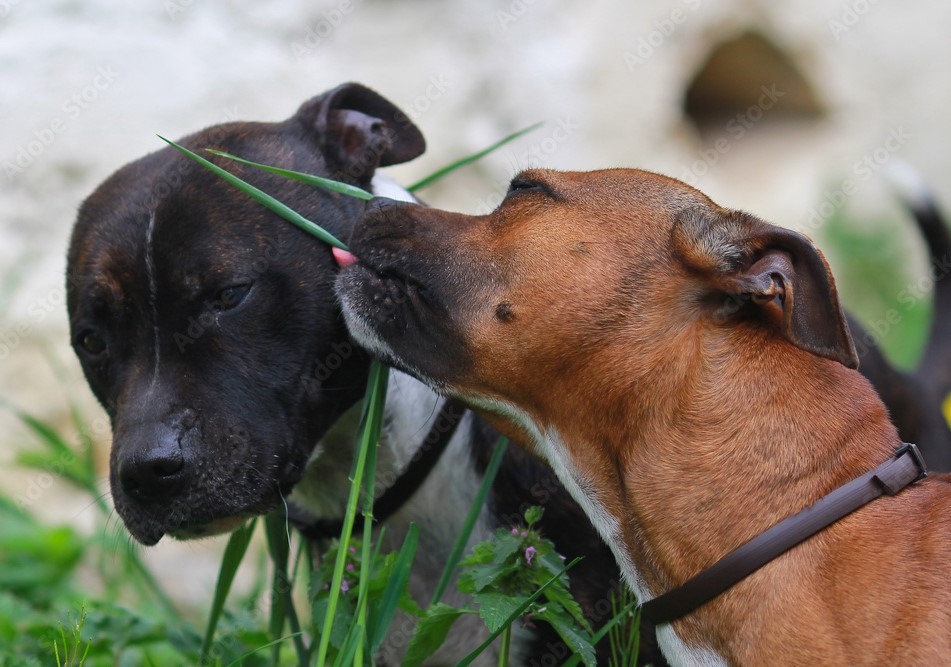Dogs are fascinating creatures, full of quirks and behaviors that sometimes leave us scratching our heads. One common behavior that many dog owners have observed is their furry companions munching on grass. While it might seem strange at first, there are several reasons why dogs engage in this behavior. In this comprehensive guide, we'll delve into the various explanations behind why dogs eat grass and what it means for their health and well-being.
1. Instinctual Behavior
- Dogs are descendants of wolves, which were natural hunters and scavengers. In the wild, wolves would consume the entire prey, including the stomach contents of herbivores, which often contained grass and other vegetation.
- This instinctual behavior may still be present in domesticated dogs, leading them to seek out grass as a natural part of their diet.
2. Nutritional Benefits:
- Grass contains essential nutrients such as fiber, vitamins, and minerals that can aid in digestion and overall health.
- Dogs may instinctively eat grass to supplement their diet with these nutrients, especially if they are lacking in certain vitamins or minerals.
3. Digestive Aid:
- Grass acts as a natural laxative for dogs, helping to induce vomiting or regulate bowel movements.'
- When dogs have an upset stomach or are experiencing gastrointestinal discomfort, they may eat grass as a way to alleviate their symptoms and promote digestion.
4. Behavioral Reasons:
- Some dogs may eat grass out of boredom or as a form of exploration and play.
- Chewing on grass can provide mental stimulation and sensory satisfaction for dogs, similar to how humans may chew on gum or other objects.
5. Attention-Seeking Behavior:
- In some cases, dogs may eat grass to garner attention from their owners, especially if they have learned that this behavior elicits a reaction.
- Dogs are highly attuned to human behavior and may engage in certain actions to gain attention or affection from their owners.
6. Pica:
- Pica is a condition characterized by the consumption of non-food items, such as grass, dirt, or rocks.
- While the exact cause of pica in dogs is not fully understood, it may be linked to underlying medical or behavioral issues, such as anxiety, nutritional deficiencies, or gastrointestinal disorders.
7. Environmental Factors:
- Dogs may be drawn to certain types of grass or vegetation based on environmental factors such as scent, texture, or taste.
- Factors such as changes in weather, seasonal allergies, or the presence of certain pests may influence a dog's desire to eat grass.
8. Learned Behavior:
- Dogs are highly adaptable creatures that learn from their experiences and surroundings.
- If a dog observes other dogs or animals eating grass, they may mimic this behavior and incorporate it into their own routine.
9. Veterinary Perspective:
- While occasional grass consumption is generally considered normal behavior for dogs, excessive or compulsive grass-eating may indicate an underlying issue that requires veterinary attention.
- If a dog exhibits signs of distress, vomiting, diarrhea, or changes in appetite or behavior after eating grass, it's important to consult with a veterinarian to rule out any potential health concerns.
The behavior of dogs eating grass is a complex phenomenon influenced by a variety of factors, including instinct, nutrition, behavior, and environment. While it may seem peculiar to us as pet owners, it's important to recognize that grass consumption is often a normal and harmless behavior for dogs. However, it's also essential to monitor our furry companions for any signs of distress or abnormal behavior and consult with a veterinarian if necessary. By understanding the reasons behind why dogs eat grass, we can better appreciate our canine friends and ensure their health and well-being.
